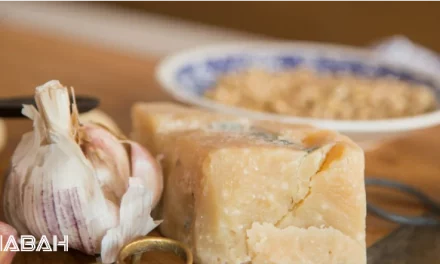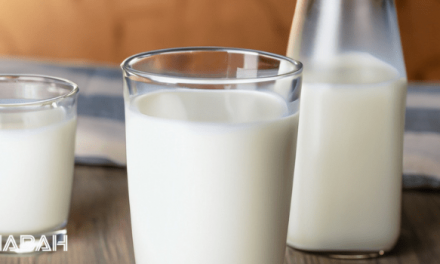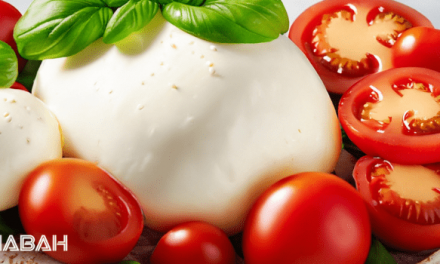Brie is revered as one of the most delectable cheeses worldwide. When perfectly ripened, it achieves a smooth, butter-like interior encased by an edible white rind.
But can Muslims partake in Brie’s deliciousness while upholding their faith? Is Brie cheese halal?
This article will provide an extensive analysis of Brie and halal standards for Islamic dietary guidelines.
We’ll evaluate its ingredients, production methods, manufacturing risks, certification nuances, and brand specifics to reach a verdict.
Let’s commence our halal investigation of the iconic Brie cheese.
What Exactly is Brie Cheese?
Hailing from the historical Brie region of France, Brie cheese has attained global fame over centuries of artisanal cheesemaking tradition.
Brie features a bloomy rind externally wrapping the soft inner pâte.
Made using cow’s milk, Brie’s taste profile evolves from mild and creamy when young towards intensified savory, nutty notes when mature. Its smooth, velvety texture contrasts the slight crunch of the rind.
There are several style variants enjoyed worldwide:
-
Double and triple cream Brie – richer versions with higher butterfat content for a more unctuous mouthfeel
-
Herbed Brie – blended with spices, herbs, peppers, or even truffles
-
Brie de Meaux – the original style from the Brie region carrying a protected designation of origin
The multifaceted Brie figures prominently in cuisines across Europe and makes for an indulgent cheese plate centerpiece.
But can observant Muslims savor its taste without compromising their religious guidelines?
Overview of Islamic Dietary Laws Pertaining to Halal Cheese
To determine if Brie meets halal criteria, we must first understand what standards cheese must satisfy to be considered permissible.
As a key reference point, the Quran outlines specific prohibited food and drink categories as ‘haram’ under Islamic law. These include:
- Alcohol or other intoxicating substances
- Pork meat or byproducts from pigs
- Improperly slaughtered meat products
Additionally for dairy products, including cheese, to be certified halal:
- The original milk must be from halal-approved animals like cows or goats
- It cannot contain pork enzymes, gelatin, lipase derived from pigs
- Animal slaughter byproducts as ingredients must meet ethical killing standards
Enzymes play a huge role in cheesemaking – especially rennet. So let’s explore this in detail.
The Role of Rennet Enzymes in Cheese Production
A pivotal factor determining cheese’s halal compliance relates to the rennet enzyme.
Rennet is the complex enzyme added to milk to commence curdling for cheese production. It effectively coagulates the milk proteins to split them into solid curds that get shaped into cheese and liquid whey.
In traditional cheesemaking across Europe, rennet was derived from the stomach lining of young ruminant calves like cows, goats, or lambs. The key compound used is chymosin – providing the ideal texture and flavor nuances for time-honored cheese varieties like Brie.
Such animal-sourced rennet is unacceptable under Islamic guidelines. Not only does extracting rennet require slaughtering young calves against ethical killing practices – ingesting those enzymes also technically classifies as consuming blood. And Carrion or blood is labelled haram in the Quran.
So can observant Muslims enjoy Brie at all? Or is Brie cheese intrinsically incompatible with halal standards?
The answer lies in alternate rennet sources now used for modern cheese production.
Vegetarian Rennet Enables Halal Cheesemaking
In the 1990s, perfecting the process for creating microbial rennet introduced new possibilities for halal-friendly cheese.
Rather than utilizing rennet derived from animal components, microbial rennet relies on enzymes from plant, fungal or bacterial sources instead.
Microbial rennet offers the precise chymosin enzyme quality needed to make cheeses like Brie or Cheddar taste authentic without animal slaughter involved.
Meeting kosher standards for Jews also requiring avoidance of mixing milk and meat makes microbial rennet a win-win for spiritual adherents. Even better, engineered chymosin enzymatic strength enhances efficiency for commercial dairy companies.
The key aspects to validate with microbial rennet regarding halal suitability include:
- No animal extracts used in creating fermentation cultures
- No alcohol contamination during the extraction process
- No potential GMO microorganisms as starting raw materials
Some small artisanal cheesemakers additionally utilize vegetarian rennet extracted from plant sources like thistle flowers, fig leaves or safflowers instead of microbes. This plant-based rennet offers another permissible halal-friendly option.
In summary, utilizing microbial rennet proves it remains very possible to produce halal-compliant Brie cheese avoiding animal death or slaughter byproducts. But additional due diligence is still required.
Risk of Cross-Contamination Between Halal and Non-Halal Cheese
Even when microbial rennet gets used in cheesemaking, facilities producing both halal and non-halal varieties can threaten contamination.
If equipment gets employed interchangeably between haram animal-rennet cheese and halal microbial-rennet cheese, traces could still transfer over, rendering the end products as questionable for Muslims.
Thus, diligent protocols must be implemented in facilities crafting halal cheeses:
-
Strict designated equipment and storage for halal cheese using microbial rennet to avoid cross-utilization
-
Thorough sanitization procedures between different cheese batch productions on shared lines
-
Halal-only packaging and sealing zones to prevent residual haram cheese contact
Customers must still verify with cheesemakers directly about their safeguards against potential halal and non-halal commingling.
Some facilities choose to exclusively use microbial rennet across all their cheese offerings to mitigate such risks altogether.
So in evaluating Brie, examining the cheese plant’s diligence around preventing cross-contamination remains vital even after confirming their rennet type.
The Issue of Alcohol Washing During Brie Aging
Beyond rennet and contamination, alcohol washing techniques used in maturing select Brie cheeses also warrants analysis.
As Brie rinds age, some producers apply solutions of wine, brandy or beer to create specific flavor and texture effects. The alcohol solutions get wiped away as the cheeses continue ripening – but slight residual traces may still remain absorbed within.
While tiny, the presence of any alcohol instantly negates the halal viability of a cheese for practicing Muslims.
Fortunately, many modern Brie producers opt to avoid such washing to cater for halal and alcohol-free food demand. Instead, dry saline solutions get brushed on for evenly distributing desirable molds and yeasts across the rind.
So Muslims seeking halal Brie must verify with manufacturers that no fermented beverages contacted the cheese at any point during aging or storage.
Evaluating Prominent Brie Halal Brands
Using the criteria we just covered regarding rennet, contamination, and alcohol, let’s examine some top global Brie producers.
President Brie
President Brie – under parent conglomerate Lactalis’s ownership – communicates using microbial rennet and no alcohol washing in their facilities. So choosing President Brie varieties avoiding animal enzymes or cross-contamination earns them a halal thumbs up.
Kirkland Signature Brie
Costco’s private label Kirkland Signature offers Double and Triple Cream Brie messaging it hails from small French artisanal cheesemakers.
But Kirkland FAQs reveal the use of animal-derived rennet for traditional flavor. Without transparent halal production protocols, Kirkland Brie stays off limits for halal consumers. Checking directly with Costco may uncover some specialty exceptions.
Specialty Halal Cheeseries
Many Muslims seeking halal Brie opt for boutique cheeseries that exclusively use microbial rennet with diligent equipment controls to prevent contamination. Small batch producers like Green Dirt Farm focus explicitly on halal handcrafted cheese.
Seeking out such specialty makers generally guarantees more transparent halal standards adherence – albeit at a premium price point.
Best Practices for Purchasing Halal Brie Cheese
When evaluating Brie for halal viability to optimize peace of mind:
Check Packaging for Certifying Symbols
Watch for established Halal authority logos like the Islamic Food and Nutrition Council of America (IFANCA) or the Halal Monitoring Committee.
Call Brands to Confirm Details
Don’t hesitate to ring cheesemakers directly to inquire about their rennet source, equipment controls, and alcohol avoidance. Reputable brands share specifics openly.
Research Restaurant Suppliers
For enjoying halal Brie platters at hotels or cafes, investigate their distributor relationships and cheese standards.
When in Doubt, Leave it Out
Without transparent confirmation of the cheese’s entire supply chain, err conservatively for spiritual continuity.
Querying local Mosque authorities on verified halal Brie options in your community also pays dividends.
Final Verdict – Brie Cheese Is Halal?
In conclusion, YES – Muslims can certainly savor permissible Brie made without animal-derived ingredients or alcohol, adhering to halal production guidelines.
But the onus lies upon the consumer to validate this by interfacing directly with cheesemakers, certifying bodies or clerical leaders rather than assuming all Brie gets approved.
With the growing artisanal halal cheese movement, Brie lovers upholding spiritual alignment need not miss out on this iconic cheese’s creamy, buttery glory.
Frequently Asked Questions – Is Brie Cheese Halal?
Yes, Brie cheese is halal. It is a soft, delectable cheese that is halal and meets the standards for Islamic dietary requirements.
What are the ingredients and production process for halal Brie cheese?
Brie cheese is traditionally made using vegetarian rennet, making it suitable for halal consumption. The manufacturing process ensures that it is made without rennet from animal sources, meeting halal standards.
How can I determine the halal status of Brie cheese?
You can check for halal certification on the packaging of Brie cheese to ensure that it meets the halal requirements. Look for indications such as “halal certified” or “suitable for halal eaters.”
What is the manufacturing process for halal Brie cheese?
The production process for halal Brie cheese involves using vegetarian rennet and ensuring that the cheese is made without any non-halal ingredients, meeting the dietary requirements for halal consumption.
Can Muslims consume President Brie cheese?
Yes, President Brie cheese is halal and can be consumed by Muslims, as it meets the halal standards and is made without rennet from animal sources.
Is Brie cheese made with halal sources?
Brie cheese is made using ingredients that meet halal standards, ensuring that it is suitable for consumption according to Islamic dietary requirements.
What makes Brie cheese halal?
Brie cheese is considered halal because it is made using ingredients and production processes that comply with Islamic dietary laws, meeting the halal status for consumption.
Does halal Brie cheese contain any non-halal ingredients?
No, halal Brie cheese is made without using non-halal ingredients, ensuring that it meets the dietary requirements for halal consumption and does not contain any prohibited substances.
What is the halal status of Kirkland Double Cream Brie cheese?
Kirkland Double Cream Brie cheese is halal, as it is made using production processes and ingredients that comply with halal standards for consumption.
Is brie cheese suitable for consumption according to Islam?
Yes, brie cheese is suitable for consumption according to Islam, as it is considered halal and meets the dietary requirements for Muslims.





